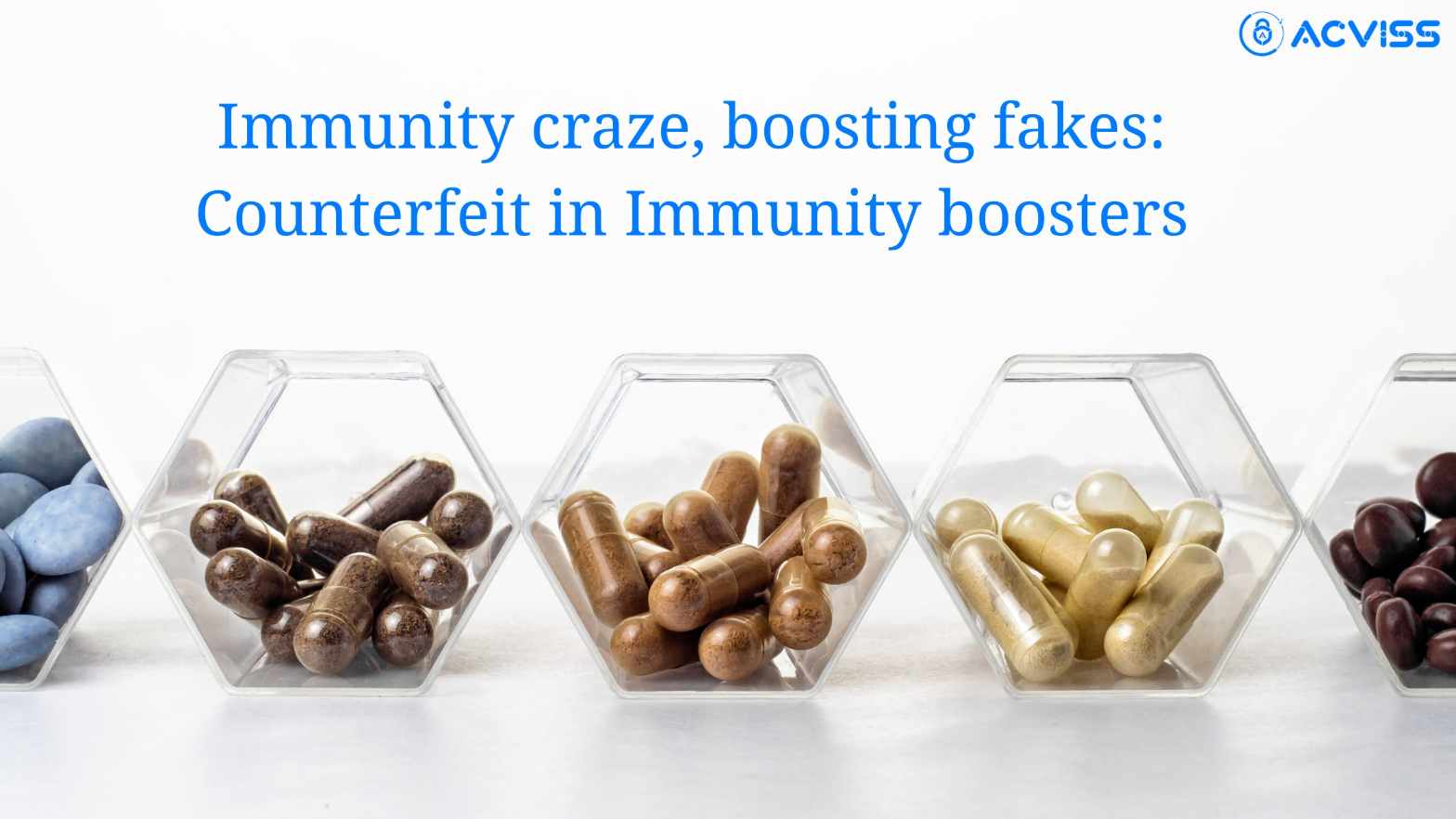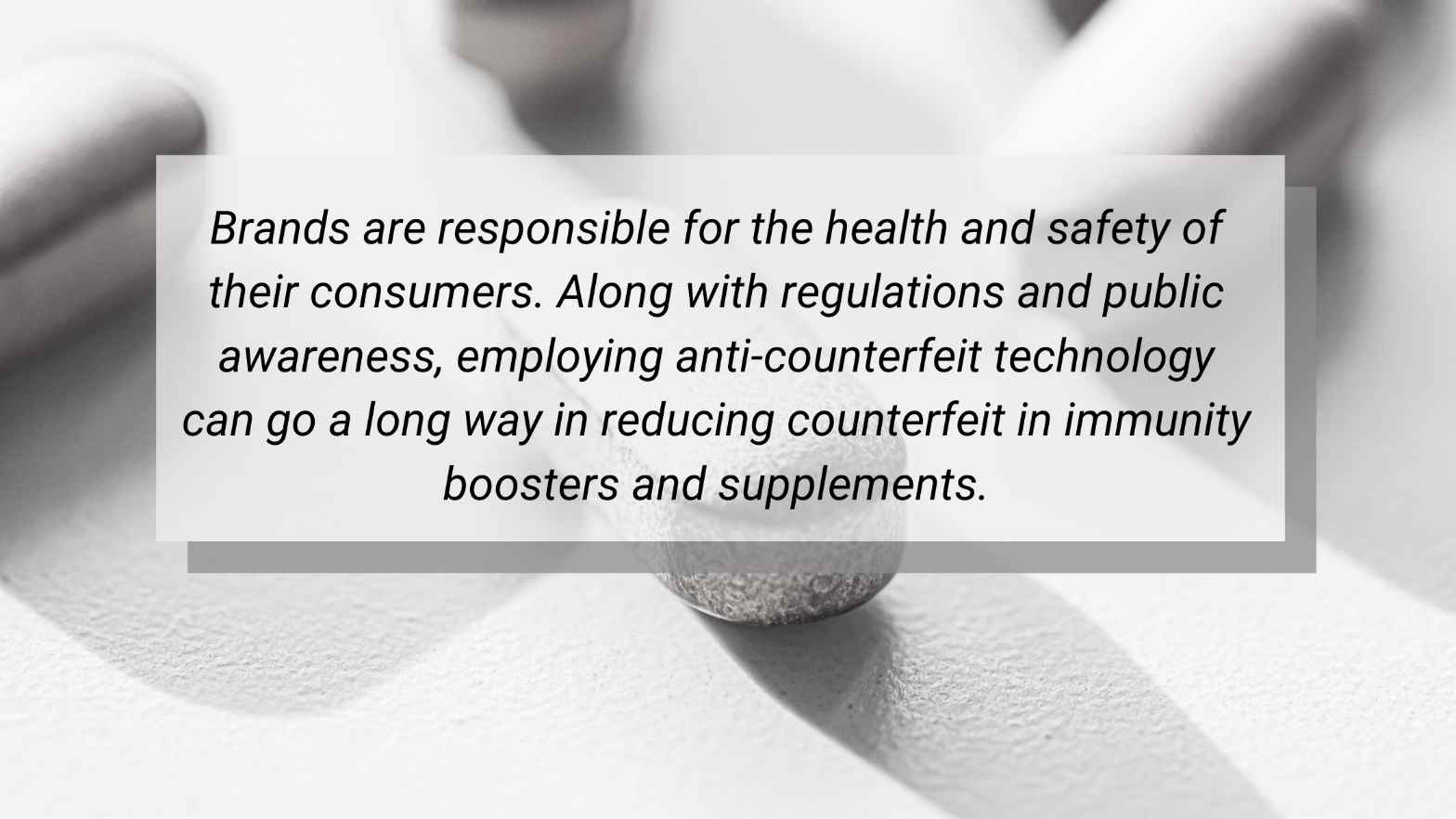
'Immunity boosters' is the buzzword. COVID 19 has directed people's attention towards health and hygiene. In the time of a global pandemic, each of us wanted to do the best we can to protect ourselves and our families. Personal hygiene and sensitization did not seem enough to most, as COVID crept closer home. When the vaccines were unavailable, people had to find preventive measures. The age-old advice of boosting immunity started trending. So, brands wanted to use the trend.
Today, it feels like every product has become an immunity booster. The term is so overused that a floor disinfectant too is an immunity booster. No doubt, capitalizing on market trends is important for brands. But fads lead to an unexpected rise in demand for products. A steep rise in the need for immunity boosters has to lead to counterfeits.
Five reasons why counterfeit immunity boosters are trending?
The market change
Building one's immunity is no longer only about eating right. In the past, people would rely on herbs and ayurvedic products to boost immunity. But today, immunity boosters come in variety and form. Micro foods, protein shakes, meal replacement supplements are healthy and tasty. No wonder everyone wants a taste of it. Today, immunity boosters have become a part of daily meals. It also means that these supplements are fast-moving and high in demand. Counterfeit immunity boosters enjoy a lucrative and vast market.
A quick fix promise
A busy lifestyle means people want a quick fix for their health concerns. If a dietary supplement promises to help you lead a great life, why would you think twice about buying it? Immunity boosters are late entrants in the market. People are not aware of the side effects of counterfeit products. They have not tried the supplement before. With so many new brands coming in, it is difficult to distinguish a fake from a genuine product. Counterfeit immunity boosters often mix steroids for speedy benefits. Also, the quick fix promise means consumers are ready to buy expensive products. In the current scenario, counterfeit immunity boosters can go undetected with ease.

Lack of clarity on regulation
The Food Safety and Standards Authority of India (FSSAI) does not verify a product's claims. While the regulations aid in reducing dangerous foods entering the market, it is silent on the marketing strategy of brands.
Online channels and e-pharmacies
Third-party sellers and online pharmacies are a risk to brands. Duplicate immunity booster supplements and unrecognized brands can sell their products online. Contamination of immunity boosters and health supplements can lead to complications. But, counterfeit immunity boosters provide no benefits. A buyer spending a lot on immunity boosters that turn out to be fake will feel cheated.
Treating COVID
When medicines were unavailable, doctors used supplements to treat COVID patients. The panic created by the medicine shortage led many people to hoard dietary supplements. The rising demand meant a green corridor for counterfeit immunity boosters and supplements. The broken supply chain caused due to lockdown fuelled the issue further.
Anti-counterfeit technology for addressing the issue of fake immunity boosters
The trend of overconsuming immunity boosters has become worrying for healthcare professionals. While the negative impact of unchecked consumption is now coming to light, legitimate brands need to invest in arresting fakes. Ensuring that the package contains overt and covert markers, codes help regulate the supply chain. Tracking and tracing the product journey has become essential in the era of eCommerce and e-pharmacies. Additionally, tamper-resistant packages reduce contamination.
Brands are responsible for the health and safety of their consumers. Along with regulations and public awareness, employing anti-counterfeit technology can go a long way in reducing counterfeit in immunity boosters and supplements.



